CIHR Strategic Plan 2021-2031
A Vision for a Healthier Future
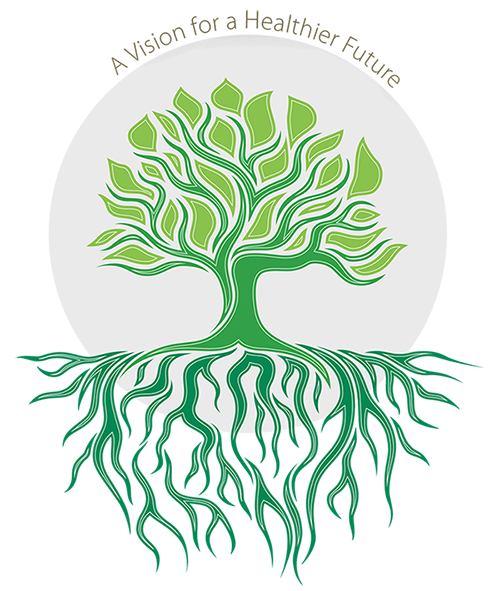
The best health for all, powered by outstanding research
The tree image as a metaphor for this Strategic Plan was inspired, in part, by the work of Dr. Charlotte Loppie, Professor at the University of Victoria's School of Public Health and Social Policy. Based on her interpretation of traditional Indigenous teachings, Dr. Loppie uses the tree image to explain how three separate but interdependent components of society work together to shape and structure the context of health outcomes. In this metaphor, the root system of the tree refers to the deep (and often unseen) foundations that shape the visible outcomes that we refer to as health disparities. These systems include political, social, economic, and historical structures that influence the core (the trunk of the tree) – a reference to the moving parts or relationships that form systems of care and political/social dynamics. The crown of the tree (the branches and leaves) represent the visible outcomes of the other elements as well as the notion of renewal.
Table of Contents
- Executive Summary
- Message from the Minister of Health
- Message from the Chair of CIHR Governing Council
- Message from the President of CIHR
- The Canadian Institutes of Health Research
- CIHR Strategic Plan (2021–2031)
- Priority A: Advance Research Excellence in All Its Diversity
- Priority B: Strengthen Canadian Health Research Capacity
- Priority C: Accelerate the Self-Determination of Indigenous Peoples in Health Research
- Priority D: Pursue Health Equity through Research
- Priority E: Integrate Evidence in Health Decisions
- Serving Canadians: Our Commitment to Organizational Excellence
- Acknowledgements
Executive Summary
CIHR's 2021-2031 Strategic Plan establishes the context that will allow Canadian health research to be internationally recognized as inclusive, collaborative, transparent, culturally safe, and focused on real world impact. Further, the plan envisions a future where Canadian researchers are global leaders in the development of ground-breaking discoveries that improve lives, and where Indigenous communities will lead health research that focuses on resilience, wellness, and Indigenous Ways of Knowing, resulting in equitable health outcomes. Through our actions, Canada will be a global leader in the science of achieving health equity. Together with our partners and stakeholders, we will strive to achieve a society where social factors such as postal codes are no longer significant predictors of life and health expectancy, and where research evidence is integrated seamlessly with Canadian health policy and practice.
CIHR will aim to achieve the best health for all, powered by outstanding research. We will do so by prioritizing activities that:
advance research excellence in all its diversity by championing a more inclusive concept of research excellence, supporting stronger research teams, promoting open science, and enhancing national and international collaboration;
strengthen Canadian health research capacity by strengthening investigator-initiated research, promoting equity, diversity, and inclusion among researchers, and enhancing training and career support as well as CIHR's rapid response capacity;
accelerate the self-determination of First Nations, Inuit, and Métis Peoples in health research by implementing the strategic plan of the Institute of Indigenous Peoples' Health and CIHR's Building a Healthier Future action plan, and by removing barriers to Indigenous-led research;
pursue health equity through research by championing research on inequitable health outcomes, access to health care in Canada, and the determinants of health, and by driving progress on global health research; and
integrate evidence in health decisions by advancing the science of knowledge mobilization, maximizing results for Canadians, and strengthening Canada's health systems through innovation.
CIHR will also promote organizational excellence. We will increase the diversity of our workforce and leadership team, while expanding our support for employee wellness and development. Further, we will review the current Institute model, modernize our internal operations, strengthen planning and prioritization processes, and enhance the vitality of the English and French linguistic minority communities in Canada.
A performance measurement framework and annual action plans will guide the implementation of this Strategic Plan. While CIHR participates in the whole-of-government response to COVID-19 and plays an important role in the recovery of the Canadian health research community, implementation of the plan will proceed at pace to ensure continued support and stability for the community.
Message from the Minister of Health

As Canadians, we care deeply about promoting good health, supporting the well-being of our loved ones, and ensuring that our publicly-funded health systems deliver compassionate and equitable care for all, including for those most disadvantaged amongst us.
The Canadian Institutes of Health Research (CIHR) plays a vital role in each of these areas. As Canada's health research investment agency, CIHR provides funding to support health researchers from across our country who are making scientific breakthroughs and transforming those discoveries into new health practices, products, and policies.
CIHR also plays a critical role in mobilizing Canadian health researchers in times of national health crises, as was recently demonstrated through its participation in the whole-of-government response to COVID-19. From the moment that the pandemic was declared, CIHR took the lead in deploying scientific expertise to protect Canadians and contribute to the global efforts to contain and fight the spread of infection. As a result, Canadian researchers have been at the forefront of the world's efforts to develop critically-needed treatments, counter-measures, and vaccines.
Today, Canada's health research community is more diverse than ever before, and our investigators continue to excel across all areas of health research – from basic biomedical research, to clinical research, to research on health services, and population and public health. Recognized internationally for the quality of their work and their leadership in fostering research collaborations, Canada's health researchers are truly among our country's greatest assets.
Canada faces many health challenges, and those challenges are often felt most acutely by the most vulnerable members of our society. By investing in research today, we will create the knowledge we need to find lasting, evidence-based solutions that benefit all people across Canada and throughout the world. On behalf of the Government of Canada, I invite Canadians to read this Strategic Plan to learn more about CIHR and its vision for improving our health today and for generations to come.
The Honourable Patty Hajdu, PC, MP
Minister of Health
Message from the Chair of CIHR Governing Council

The launch of CIHR's new Strategic Plan is a landmark moment for Canada's health research funding agency, and the priorities identified in this Strategic Plan were the result of the most comprehensive engagement process in CIHR's history. As members of CIHR Governing Council, it has been our privilege to shepherd this engagement process, as it enabled us to hear from a diversity of voices and learn from a broad array of perspectives.
In developing this plan, we surveyed Canadians on their priorities for health research and sought input from the health research community through an online strategic planning portal. We held numerous meetings with key stakeholders from all levels of government, academia, Indigenous organizations and communities, international partners, charities, and the health care sector. CIHR employees were also engaged through town halls and focused discussions. We then convened a workshop to share a preliminary synthesis of what we had heard during those discussions and to once again solicit input from patients and members of the public, researchers, and other stakeholders. Finally, we organized a national health research summit to seek additional input reflecting a wide-range of perspectives to investigate how the emergent priorities and strategic directions resonated with members of the health research community and other stakeholders. While we had to pause this process to focus our resources on supporting Canada's whole-of-government response to the COVID-19 pandemic, once the situation stabilized, we conducted additional engagements with stakeholders to consider the implications of the pandemic for both the health research ecosystem and people in Canada.
Together, the input received from these surveys and discussions contributed to Governing Council's efforts to identify the priorities and strategies found in this Strategic Plan. We are grateful to all Canadians – including our partners as well as health researchers from across the country – who contributed to this important national conversation. Governing Council would also like to acknowledge the outstanding contributions made by CIHR staff and Scientific Directors; their combined expertise and insight was invaluable throughout the strategic planning process.
On behalf of CIHR Governing Council, I wish to thank the many organizations, groups, and individuals who contributed to the development of this Strategic Plan, and offer my best wishes to the health researchers across our country who work each day to improve health and strengthen our health systems.
Jeannie Shoveller, PhD, FCAHS
Chair, CIHR Governing Council
Message from the President of CIHR

We are at a point in the history of CIHR – and indeed, given the events of 2020, the history of Canada – where it is time to reimagine the health of Canadians and how we influence our health status.
Today, we have immense knowledge of the multiple variables that will affect the health and quality of life of people in Canada, and how interconnected our collective health is to that of the world at large. We are also gaining tremendous insights into the fundamental causes of disease at a pace that was once unimaginable. Yet, despite all of this knowledge, the burden of disease and health inequities continue to drive unsustainable health care costs. So the path seems clear: we must make the commitment to think long-term and develop an inclusive vision for health research that transcends generations.
To take such an approach demands that we focus on clearly defined, aspirational outcomes that will impact the health of generations to come. As we have learned from many Indigenous colleagues, change is multi-generational and demands that we strive to integrate a broad array of both contemporary and traditional knowledge. Achieving this vision will also require “boldness with pace” – a need to be daring with our ideas and decision-making, while also planning and executing our changes in a thoughtful, engaged, and timely manner. As the world of health research evolves, CIHR will also need to be dynamic as we grow our capacity to adapt and evolve with our environment.
With the launch of CIHR's new Strategic Plan, we are establishing the roots from which our bold vision to demonstrably improve the health of future generations of Canadians will develop. In so doing, we acknowledge the Indigenous teaching that such change will evolve with each successive generation before its full effect is realized. Consistent with the vision of CIHR's founders, such an approach must be built on the fundamental principle of supporting and nurturing excellence in all aspects of our research. It is a vision that values knowledge creation as foundational to shaping the health of people in Canada, just as it emphasizes the importance of supporting capacity building and knowledge mobilization as integral components of our mandate. It also acknowledges that the inequitable health outcomes that are readily evident across our country – particularly amongst First Nations, Inuit and Métis Peoples – cannot be addressed in the absence of a fundamental rethinking of how we develop, define, and advance new approaches to research excellence.
This Strategic Plan speaks to the resiliency and deep interconnectedness of the Canadian research ecosystem and is released at a time when the world is collectively working through the generational health challenge of the COVID-19 pandemic. It is in this light that we invite members of the Canadian health research community to unite in an effort to ensure the best health outcomes for all, powered by outstanding research, now and in the future.
Michael J. Strong, MD, FRCPC, FAAN, FCAHS
President, CIHR
The Canadian Institutes of Health Research
As Canada's health research investment agency, CIHR collaborates with partners and researchers to support the discoveries and innovations that improve our health and strengthen our health systems. CIHR was created in 2000, under the authority of the Canadian Institutes of Health Research Act, as an independent agency that is accountable to Parliament through the Minister of Health. Our mission is to create new scientific knowledge and to enable its dissemination and implementation into improved health, more effective health services and products, and strengthened Canadian health systems. This is the value proposition of CIHR.
CIHR is part of the federal Health Portfolio, which supports the Minister of Health in maintaining and improving the health of Canadians. CIHR is comprised of a headquarters located in Ottawa, as well as Institutes located throughout the country that support individuals, groups, and communities of researchers and trainees across Canada.
Our Vision
The best health for all, powered by outstanding research.
Our Mandate
As embedded in the CIHR Act, our mandate is to excel, according to internationally accepted standards of scientific excellence, in the creation of new knowledge and its mobilization into improved health for Canadians, more effective health services and products, and strengthened Canadian health care systems.
Our Values
Our organizational values express the ideals that we strive to attain at CIHR. When these values are communicated, operationalized, and embraced by all of us, they shape our behaviour, guide our decision-making, and sharpen our focus. These values also help us to achieve our goals as an organization and underpin all of our activities.
- Excellence and leadership
We are committed to organizational excellence and leadership in supporting health research and innovation in Canada and throughout the world. We will maintain a high level of professionalism and exemplify leadership in everything we do. We are adaptable, forward-looking, and focused on delivering results to improve the health of Canadians.
- Commitment to collaboration
The health research enterprise is a dynamic, changing, and inter-related system – and many organizations and individuals play important roles to ensure that this enterprise delivers results for Canadians. At CIHR, we commit to meaningfully consult and engage with our colleagues, partners, and stakeholders.
- Respect for people
We are committed to supporting the principles of equity (fairness), diversity (representation), and inclusion (valued participation) in all interactions and across all aspects of CIHR's daily business. We value and respect the dignity and contributions of all, and commit to employing inclusive practices anchored to cultural safety, working in partnership with the most affected communities to actively oppose discrimination, including systemic racism, in all its forms.
- Integrity and accountability
We are committed to facilitating health research that meets the highest international standards of excellence and integrity. We are committed to decision-making based on evidence, accountability, and transparency. We are also committed to systematically embedding the consideration of ethical issues – and the application of ethical principles – into CIHR's business.
Our Commitments
Over the course of developing this Strategic Plan in collaboration with our community, we also affirmed a number of commitments that will guide us as we strive to achieve our long-term, generational vision through the new priorities and strategies. As we implement the Strategic Plan:
- We will focus on improving the health of all people in Canada and our health systems
Our mandate is to improve the health of people in Canada and our health systems through the support of research excellence.
- We will ensure that all people in Canada have access to high-quality research, especially when they need it most
When new health threats emerge, we will mobilize research funding and work with our partners to find solutions, put them into action, and disseminate information to all stakeholders.
- We will commit to fair, transparent, and equitable peer review
CIHR will champion best practices with regard to the adjudication of grants and awards, and the process will be fair, transparent, and equitable.
- We will invest in both priority-driven and investigator-initiated research
CIHR will maintain a blend of priority-driven and investigator-initiated funding, and we will ensure that this mix occurs across career stages.
- We will retain Institutes as part of the CIHR model
Institutes are an integral part of our organization and are key to realizing the strategic aims of CIHR. We remain committed to ensuring the optimal use of our Institutes to achieve our goals.
- We will convene a united community of health research funders
At CIHR, we recognize that we cannot achieve our mandate while working alone. We will play a leadership role in convening a united community of partners to create a vibrant health research ecosystem and achieve maximum impact for Canadians.
- We will foster both health research capacity in Canada and sustainable careers for individual researchers
We will invest in strengthening health research capacity in Canada overall, as well as supporting individuals to pursue productive careers in health research.
CIHR Strategic Plan (2021–2031)

CIHR's Strategic Plan (2021–2031) is inspired by a bold vision that encourages Canadian researchers to think in the broadest possible terms about how they can demonstrably improve the health of people in Canada, and throughout the world. It asks us to recognize that health is a dynamic outcome that must be addressed, not only through rigorous science, but also by working in close partnership with those most deeply affected by inequitiesFootnote1 in our country. The plan further highlights the critical role of basic biomedical science and knowledge mobilizationFootnote2 in improving health and health systems by facilitating the uptake of knowledge and discoveries. For Indigenous Peoples of Canada, self-determination in health research is critically important. This plan affirms our commitment to accelerating this process. Finally, as Canada's primary health research funder, CIHR has a responsibility to support both health research and researchers. We therefore continue our efforts to achieve the best for both, which includes a strong focus on the three principles of equity, diversity, and inclusion.
The priorities and strategies identified in this Strategic Plan were the result of a two-year engagement process that included the Canadian public, all levels of governments, academia, Indigenous organizations and communities, national and international partners, charities, the health care sector, and CIHR staff. This advice was collected, analyzed, and shared with stakeholders in the most comprehensive and transparent engagement process in CIHR's 20-year history.
While CIHR was developing this Strategic Plan, the COVID-19 pandemic struck Canada and the world, followed soon thereafter by worldwide protests against systemic racism. To help inform how the plan could address these events, CIHR held additional engagements. These confirmed the existing focus of the plan's priorities and strategies, and further emphasized the importance of health equity, knowledge mobilization, and equity, diversity, and inclusion for health researchers. This final version of the plan reflects all insights learned during these and earlier engagements.
This plan has been framed intentionally at a high level, in order to provide CIHR with priority-setting direction for the next 10 years, while also allowing us to reprioritize and redirect resources on short notice to respond to emerging issues – as we did in our response to COVID-19. While we implement the various aspects of this new Strategic Plan, we will complement our internal resources (such as policy experience and the scientific expertise and connections of the Institutes) with continuous community outreach. By engaging with a diverse and inclusive set of stakeholders, we will ensure that our decisions reflect current knowledge and best practices, that our actions are coordinated with those of others, and that our collective efforts benefit the entire health research community and all people in Canada, urban and rural, from coast to coast to coast.
As a learning organization that seeks to be adaptable in the face of change, we will develop a performance measurement framework accompanied by annual monitoring and reporting mechanisms that will enable us to determine if we are on track, and course-correct if necessary. While CIHR participates in the whole-of-government response to COVID-19 and plays an important role in the recovery of the Canadian health research community, implementation of the Strategic Plan will proceed at pace, to ensure continued support and stability for the community. Progress will be guided by annual action plans that will be developed each year, based on the priorities and strategies of this Strategic Plan. These action plans will be made publicly available and will be accompanied by progress reports. Further, we will conduct a full review of the implementation process at the halfway mark (five years).
Priority A: Advance Research Excellence in All Its Diversity

Recognizing our present
In Canada, there is an urgent need to invest in research that will promote evidence-based solutions to the health challenges that we face. There is also a growing recognition that rewarding traditional notions of research excellence can bias research assessment and the types of research projects that are funded, thereby acting as a barrier to maximal impact. In response, CIHR has implemented a Sex and Gender-Based Analysis Action Plan, and joined a global movement to redefine research excellence by signing the San Francisco Declaration on Research Assessment (DORA). These building blocks, together with a meaningful reconceptualization of how health research is assessed and funded, will better position CIHR to maximize its impact.
Reimagining our future
In 10 years...
Canadian health research will be internationally recognized as inclusive, collaborative, transparent, culturally safe, and focused on real world impact.
At CIHR, our actions are inspired by a desire to improve the health of people in Canada and throughout the world. In pursuit of this goal, we will engage with partners to promote and define impactful research excellence that prioritizes inclusive, transparent, and collaborative science, at all stages of discovery and mobilization. We will achieve this by developing, implementing, and championing a more inclusive concept of excellence throughout our programs, policies, and peer review, and by aligning the reward and incentive system for researchers with this objective. The following strategies will result in more impactful research by placing Canada at the leading edge of research assessment. This approach will also help address inequitable health outcomes and improve the long-term health of people in Canada, which is the cornerstone of this Strategic Plan.
Strategies
1. Champion a more inclusive concept of research excellence
Working with research institutions, other funding organizations, and communities, CIHR will develop and promote a renewed concept of research excellence that values the three principles of equity (fairness), diversity (representation), and inclusion (valued participation). This approach will recognize fundamental knowledge creation, knowledge mobilization, multiple ways of knowing, and non-traditional research methodologies and outputs as cornerstones of Canadian research. It will also recognize patients, the public, providers, decision-makers, and other users of research outputs as active collaborators throughout the entire research process.
2. Support stronger research teams
Society's greatest health challenges often require the insights of more than one discipline. In line with the recommendations of the Canadian Academy of Health Sciences, we will increase the impact of funded research by strengthening support for interdisciplinary and team science that includes knowledge users through our funding opportunities and peer review.
3. Promote open science
CIHR will make the results of Canadian health research more accessible so that they can be used more broadly, resulting in benefits for health and health care. In doing so, we will mandate that our funded research adheres to the FAIR principles (findable, accessible, interoperable, and reproducible) through changes to our requirements, policies, and peer review. CIHR will also respect and uphold the rights of First Nations, Inuit and Métis Peoples to self-determine the management of Indigenous research data.
4. Enhance national and international collaboration
As a member of Canada's Health Portfolio, CIHR recognizes the importance of working closely with federal, provincial, and territorial health partners. At the same time, we understand that CIHR must also work beyond the health sector, including across Canada's research funding agencies, to effectively address our country's health challenges. We will adopt a leadership role to promote collaboration and partnerships in all areas of our business and in all stages of our initiatives, strengthen patient and public engagement in research, and promote collaboration across Canada's research community. CIHR will also develop an action plan for international collaboration that will address global challenges, create stronger initiatives, and enable the sharing of expertise and infrastructure, to improve the health of people in Canada and throughout the world.
Priority B: Strengthen Canadian Health Research Capacity

Recognizing our present
CIHR has made great strides in strengthening Canada's health research capacity, in order to accelerate the process of scientific discovery. As part of these efforts, we have implemented a CIHR Strategic Action Plan on Training, as well as a CIHR Equity Strategy designed to produce a more equitable, diverse, and inclusive health research community. While these represent positive steps, there are opportunities to better align the funding and training of Canadian health researchers with Canada's most pressing health challenges. The research community must be broader, more diverse, and better prepared to achieve career success.
In 10 years...
Canadian researchers will be global leaders in the development of ground-breaking discoveries that improve lives.
Reimagining our future
The health and health system challenges that we will face over the coming years require a vibrant, stable, and well supported Canadian health research community, free from systemic discrimination. This strengthened health research community will reflect the diversity of our country, foster an environment of exceptional creativity, and ensure that all people in Canada benefit from these investments. This will be achieved through various efforts to increase the number of outstanding research projects being funded, by incorporating the three principles of equity, diversity, and inclusion as core organizational values, and by enhancing training and career support. To ensure maximum impact and efficiency, CIHR will undertake these efforts in collaboration and coordination with our health research funding partners.
Strategies
1. Strengthen investigator-initiated research
Investigator-initiated research, sometimes also referred to as fundamental or open research, is the cornerstone of Canadian health research. We will address the challenges underlying low success rates in this funding stream and implement a principled approach to the distribution of funding for all career stages and all research areas.
2. Promote equity, diversity, and inclusion
CIHR will embrace the diversity of Canada by implementing targeted actions focused on funding researchers in accordance with each of the three principles of equity, diversity, and inclusion. By removing systemic barriers to accessing research funding and embracing a diversity of perspectives, we will enhance the participation and retention of outstanding researchers from all under-represented groups, to ensure that we are capitalizing on the full extent of Canada's tremendous scientific talent.
3. Enhance training and career support
We will strengthen the health research community by developing a policy framework (accompanied by action plans) that will address gaps in training and support across all career stages, transitions, and paths. Through these efforts, we will prepare researchers to respond to a broad range of current and future needs.
4. Enhance CIHR's rapid response capacity
In times of health emergencies, the Canadian research community expects leadership and support from CIHR. At the same time, Canada can also benefit from collaborating and playing a leadership role in international initiatives. We will develop our capacity for rapid national and international coordination and collaboration, prioritization, and investment, aiming to enable rapid and evidence-informed responses to emerging health threats.
Priority C: Accelerate the Self-Determination of Indigenous Peoples in Health Research

Recognizing our present
Recognizing the great resilience of First Nations, Inuit and Métis Peoples, and the disparities in health outcomes experienced by these populations, CIHR implemented the Action Plan: Building a Healthier Future for First Nations, Inuit and Métis Peoples to strengthen Indigenous health research aimed at increasing health equity. This plan includes the implementation of iterative peer review processes for Indigenous health research projects, as well as a commitment to increase investments in Indigenous health research to a minimum of 4.6% of CIHR's annual budget (proportional to Canada's Indigenous population at the time it was adopted). It is now time to reiterate and bolster our commitment to Indigenous health research as a central priority in achieving health equity in Canada.
In 10 years...
Indigenous communities will lead health research that focuses on resilience, wellness, and Indigenous Ways of Knowing, resulting in equitable health outcomes – something that has not been achieved in our lifetime.
Reimagining our future
First Nations, Inuit and Métis Peoples are the original Peoples of Turtle Island and Inuit NunangatFootnote3 and CIHR recognizes their significant and ongoing contributions to research, as well as to our collective understanding of health and well-being. Guided by a spirit of reconciliation and co-existence, and a commitment to promoting optimal health, CIHR will prioritize the requirements needed for First Nations, Inuit and Métis communities, including urban Indigenous populations, to strengthen Indigenous health research and knowledge mobilization. By listening attentively to and working with First Nations, Inuit and Métis Peoples, CIHR will embrace a distinctions-based and culturally safe approach to this important work.
Strategies
1. Advance the health and well-being of First Nations, Inuit and Métis Peoples
CIHR will ensure broad support across the agency for the implementation of the 2019–2024 Strategic Plan of the Institute of Indigenous Peoples' Health (IIPH) and its focus on improving spiritual, mental, physical, and emotional health and well-being. We will also embrace the National Inuit Strategy on Research and work closely with Inuit leadership to realize the goals identified within this important guiding work.
2. Accelerate the implementation of the CIHR Action Plan: Building a Healthier Future for First Nations, Inuit and Métis Peoples
CIHR will continue to follow through on the commitments made in our Action Plan: Building a Healthier Future for First Nations, Inuit and Métis Peoples, to strengthen Indigenous research capacity development through training and mentoring along the entire career continuum. As expressed in this action plan, this will also include embracing the plurality of Indigenous knowledge in science.
3. Remove barriers to Indigenous-led research
CIHR recognizes the importance of removing administrative barriers that are restricting access to research funding for First Nations, Inuit and Métis Peoples, at both the individual and community level. CIHR will implement policies and other measures to expand both application eligibility and the eligibility to administer CIHR research funds. CIHR will also ensure that the necessary financial and operational support is provided to First Nations, Inuit and Métis Peoples. This will enable communities to control research as well as knowledge mobilization activities that are critical for improving health, and will support Indigenous communities to respond to health issues from a position of strength.
Priority D: Pursue Health Equity through Research

Recognizing our present
Based on extensive engagements, it is clear that health equity – defined by the World Health Organization as the absence of avoidable, unfair, or remediable differences among groups of people, however these groups are defined – remains the most pressing health-related challenge in our country. Equity is a central piece of our cultural fabric as Canadians, and we recognize the breadth, complexity, and importance of the social, cultural, environmental, structural, and biological determinants that produce optimal health. Unfortunately, as a result of systemic discrimination, including racism, and other determinants of adverse health outcomes, there remain too many serious disparities amongst population groups in Canada. It is now time for a clear commitment to address health inequities as a significant aspect of our work and improve the quality of life in Canada and globally.
In 10 years...
Canada will be a global leader in the science of achieving health equity, striving to achieve a society where social factors such as postal codes are no longer significant predictors of life and health expectancy.
Reimagining our future
At CIHR, we envision a future where equity is one of Canada's defining contributions to science and Canadian health researchers are recognized as global leaders in the science of achieving health equity. CIHR will pursue this objective by catalyzing research across all research areas to reduce health equity gaps that exist in Canada. We will also support global health initiatives that will allow people throughout the world to benefit from existing knowledge as well as from future transformations in diagnostic, treatment, and prevention research. Ultimately, CIHR-funded research will lead to healthier communities that enjoy a good quality of life and are better able to cope with health emergencies.
Strategies
1. Reduce health inequities through research
CIHR will develop an action plan focused on supporting research and knowledge mobilization efforts. With research spanning cells to society, this action plan will specifically address inequitable health outcomes and access to health care in Canada.
2. Champion research on the determinants of health
Working in collaboration with the federal Health Portfolio and other partners and communities, CIHR will develop an action plan that identifies and addresses the social, cultural, environmental, structural, and biological determinants of health and that will lead to effective prevention practices in Canada.
3. Drive progress on global health research
In keeping with the CIHR Act, CIHR will implement a framework for action on global health research that mobilizes Canadian research excellence to accelerate health equity for all.
Priority E: Integrate Evidence in Health Decisions

Recognizing our present
Over its 20-year history, CIHR has helped to shape the field of knowledge mobilizationFootnote4 through the support of focused programs, the creation of the Strategy for Patient-Oriented Research (SPOR), and the development of open science and open access policies and activities. Along this journey, we have seen significant advances in areas such as implementation science, integrated knowledge translation, embedded research, and learning health systems. However, despite the collective efforts in this area, many promising discoveries still do not lead to new policies, practices, or products. As well, Canadians are often unaware of valuable health information that could improve their lives and research evidence still takes too long to move from the centres of discovery to our health systems. These missed opportunities mean that Canadians do not reap the full benefit of the outstanding health research that is conducted in our country – or from important discoveries in other countries that could be adapted to improve the health of people in Canada and strengthen our health systems. It is now time to strengthen our efforts in the evolving field of knowledge mobilization, and focus on moving evidence into Canadian health systems.
Reimagining our future
In 10 years...
research evidence will be integrated seamlessly with Canadian health policy and practice.
Health research becomes most valuable to our society when it is used to inform clinical practice and policy, drive the development of new drugs and products, and enable people to take charge of their own health. CIHR sees a future where the gap between discovery and implementation is a thing of the past; where Canadian researchers are at the forefront of knowledge mobilization; and where the uptake, scale, and spread of evidence are engrained in the fabric of Canadian institutions. To achieve this, we will work with our partners to prioritize knowledge mobilization at all stages of discovery, invest in implementation science, and strengthen the capacity of knowledge users to leverage and use research findings. We will also invest in research that supports the mobilization of health system innovations, including its commercialization, in areas such as technology, virtual care, and artificial intelligence.
Strategies
1. Advance the science of knowledge mobilization
CIHR will further the science of knowledge mobilization in Canada amongst researchers and knowledge users, including patients, the public, policy-makers, clinicians, and other stakeholders. This will build capacity for knowledge users to communicate their needs to researchers and utilize research evidence; for researchers to communicate their findings to knowledge users; and for policy-makers to access evidence when making decisions.
2. Maximize results for Canadians
CIHR will increase the impact of its investments by prioritizing the dissemination and implementation of existing knowledge to inform health practice and policy, drive commercialization, and enhance health equity. Further, CIHR will improve the health literacy of Canadians and empower them to take charge of their own health.
3. Strengthen Canada's health systems through innovation
Recognizing the complexity of our health systems, CIHR will prioritize investments in research at all stages of discovery and mobilization focused on innovation, evidence to support health system transformation, and commercialization. This aims to deliver better outcomes, at lower costs, while improving the health care experience amongst patients, families, and health practitioners.
Serving Canadians: Our Commitment to Organizational Excellence
CIHR's employees are among the most dedicated and passionate public servants in Canada. We care deeply about improving the health of Canadians and strive each day to make Canada a better place. From our central office in Ottawa to each of our Institutes located across the country, we are collectively focused on this core vision.
At CIHR, our goal is to be an effective and efficient organization that makes optimal use of the investments of Canadian taxpayers. In our aim to have an employee workforce and leadership that is reflective of the diversity in Canadian society, we embrace equity, diversity, and inclusion and reject systemic racism, discrimination, disrespectful conduct, and intolerance. As part of this Strategic Plan, we will undertake a series of actions to foster excellence in the management and operations of the agency. Given the importance of CIHR's employees to the success of the organization, CIHR has made a commitment to support staff wellness and development as a critical priority. At the same time, we will modernize our organization to ensure that we can continue to meet the evolving needs of science, our employees, and Canadian society – even under difficult circumstances. These measures, together with the annual action plans that will guide the paced implementation of this Strategic Plan, will ensure CIHR's success in delivering its priorities.
Specifically, we will:
- Support employee wellness and development
We will expand our focus on mental health and well-being within CIHR by adopting best practices, informed in part by the research and knowledge we fund. Further, we will invest in the learning and development of our employees so that they can produce best-in-class results for the benefit of Canadians.
- Review the current Institute model
We will assess the mandate and slate of CIHR's Institutes through a formal process, to ensure that an organizational structure is in place that meets the scientific and operational needs of CIHR and our stakeholders.
- Modernize internal operations
To support the implementation of the new Strategic Plan, we will modernize our ways of working to respond to changing realities in work environments, adapt to rapidly evolving situations, ensure unimpeded business functioning, and enable us to keep pace with changes in the composition of Canadian society and its labour force. For this purpose, we will assess our internal capacity and make enhancements where needed, starting with the areas of analytics, knowledge mobilization, science communication, and digital services.
- Strengthen planning and prioritization processes
Through governance renewal, a new investment approach, and an enhanced and integrated planning process, coupled with continuing financial diligence, we will improve workload management, prioritization, and communication practices, thereby allowing for agile responses to emerging priorities.
- Enhance the vitality of the English and French linguistic minority communities in Canada
We will pursue positive measures to support and assist the development of Canada's English and French linguistic minority communities, and foster the full recognition and use of both English and French at CIHR and in Canadian society, consistent with the Official Languages Act (article VII 41(1)).
Acknowledgements
Many groups and individuals – throughout Canada's health research community, Indigenous Peoples, and the greater public, as well as CIHR staff – contributed to the development of this Strategic Plan. In particular, we would like to acknowledge the valuable input we received from the participants of the Consensus Building Workshop and the National Health Research Summit. Both of these events significantly shaped the priorities and strategies within this plan.
We would also like to thank all of the committees and their members who provided advice, direction, and support throughout this process:Footnote5
CIHR Governing Council

Jeannie Shoveller
Chair
Vice-President, Research and Innovation, IWK Health Centre; Professor, Dalhousie University Faculty of Medicine

Alice Aiken
Vice-Chair
Vice President (Research and Innovation), Dalhousie University

Paul Allison
Faculty of Dentistry, McGill University

Brenda Andrews
Charles H. Best Chair of Medical Research, Professor and Director, Donnelly Centre for Cellular and Biomolecular Research
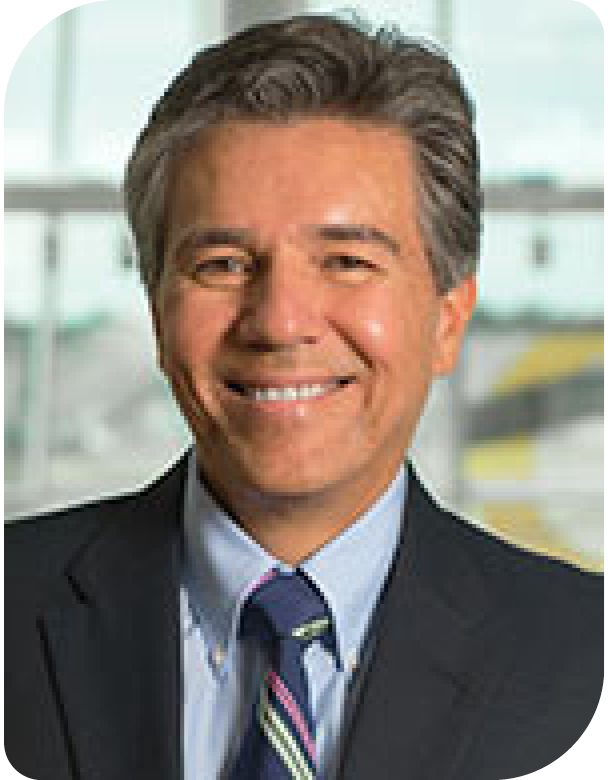
Mark Dockstator
Former President, First Nations University of Canada

Don Ferguson
Former Deputy Minister of Health for New Brunswick

Debbie Fischer
Executive-in-Residence, Rotman School of Management, Executive Associate, KPMG
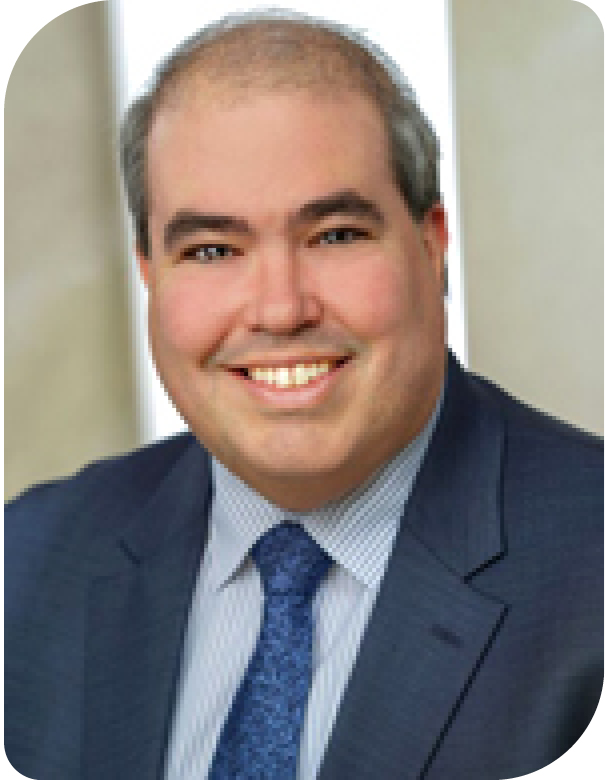
Dominic Giroux
President and CEO, Health Sciences North and the Health Sciences North Research Institute

Diane Gosselin
President and Chief Executive Officer, CQDM

Nada Jabado
Senior Scientist, RI-MUHC, Glen site Child Health and Human Development Program

Brianne Kent
Assistant Professor, Simon Fraser University

Josette-Renée Landry
CEO, Institut du Savoir Montfort, Founder, Streamline Genomics

Louise Lemieux-Charles
Professor Emeritus, Institute of Health Policy, Management and Evaluation, Dalla Lana School of Public Health, University of Toronto

Stephen Lucas
(ex-officio, non-voting member)
Deputy Minister, Health Canada

Amélie Quesnel-Vallée
Professor, Departments of Sociology and Epidemiology, McGill University

Michael Salter
Chief of Research and Senior Scientist, Neurosciences and Mental Health, The Hospital for Sick Children

Michael Strong
(ex-officio, non-voting member)
President, CIHR

Marcello Tonelli
Senior Associate Dean (Health Research), Cumming School of Medicine, Associate Vice President (Health Research), University of Calgary
CIHR Science Council
February 2021

Michael Strong
Chair
President, CIHR

Christine Chambers
Scientific Director, Institute of Human Development, Child and Youth Health

Tammy Clifford
Vice-President, Research Programs
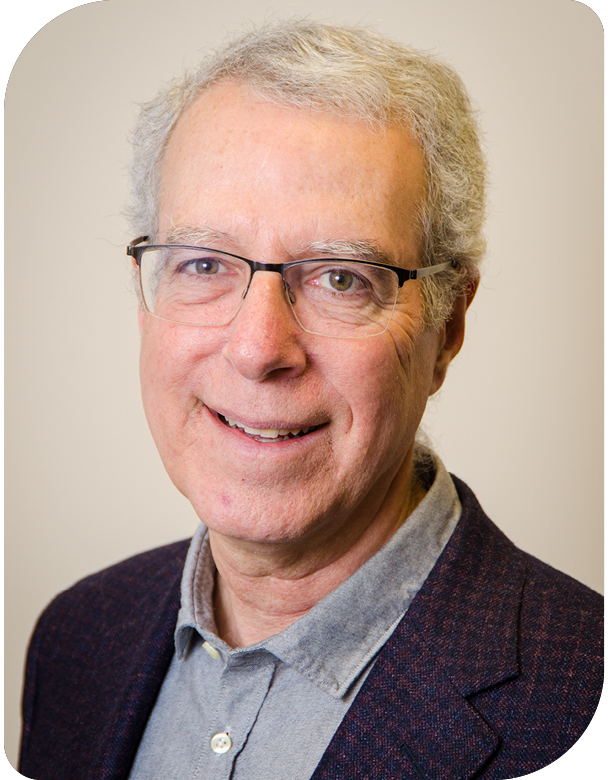
Rick Glazier
Scientific Director, Institute of Health Services and Policy Research

Steven Hoffman
Scientific Director, Institute of Population and Public Health

Charu Kaushic
Scientific Director, Institute of Infection and Immunity

Karim Khan
Scientific Director, Institute of Musculoskeletal Health and Arthritis

Catherine MacLeod
Executive Vice-President
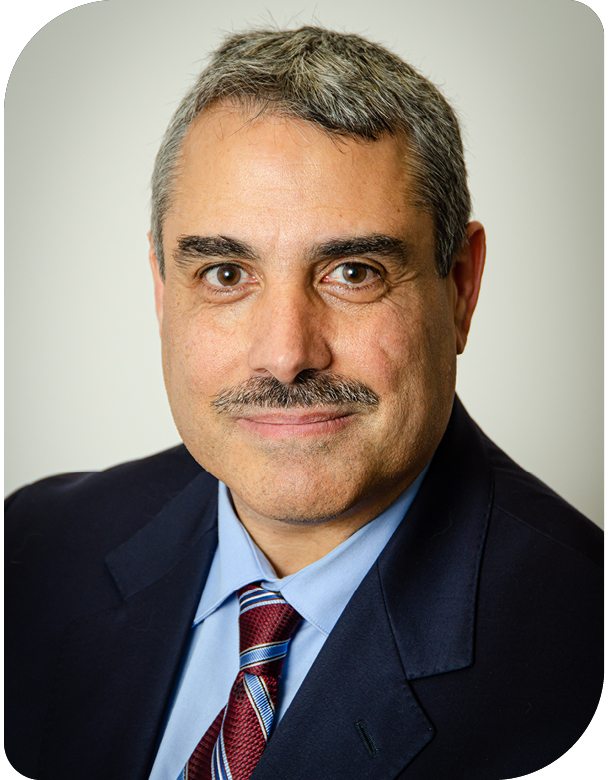
Dwayne Martins
Associate Vice-President, Corporate Services

Christopher McMaster
Scientific Director, Institute of Genetics

Dalia Morcos Fraser
Chief Financial Officer

Adrian Mota
Associate Vice-President, Research Programs – Operations

Stephen Robbins
Scientific Director, Institute of Cancer Research

Norman Rosenblum
Scientific Director, Institute of Nutrition, Metabolism and Diabetes

Brian Rowe
Scientific Director, Institute of Circulatory and Respiratory Health

Jane Rylett
Scientific Director, Institute of Aging
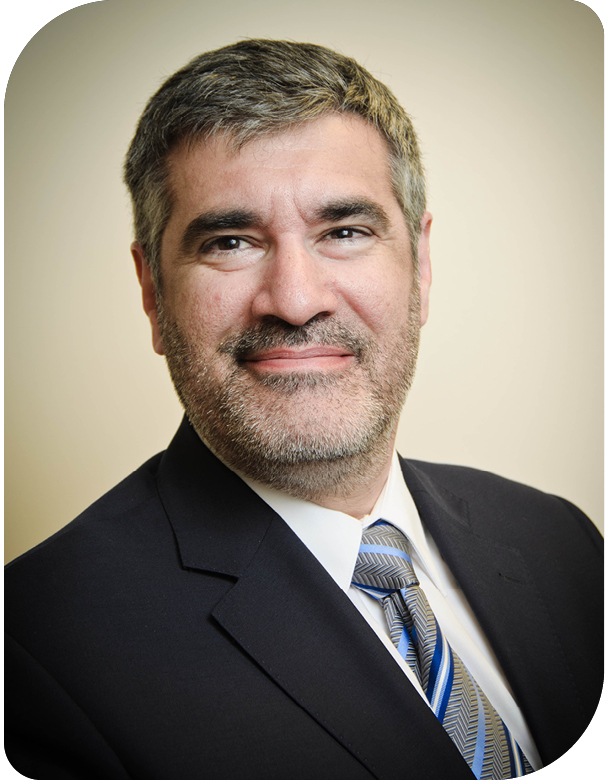
Christian Sylvain
Associate Vice-President, Governance and External Relations

Cara Tannenbaum
Scientific Director, Institute of Gender and Health

Sarah Viehbeck
Associate Vice-President, Research Programs – Strategy

Samuel Weiss
Scientific Director, Institute of Neurosciences, Mental Health and Addiction
CIHR Strategic Plan Working Group
- Jeff Latimer (Chair),
Head, Strategic Planning - George Collier,
Senior Partnership Lead - Julie Conrad,
Manager, Program Design and Delivery - Sarah De La Rue,
Assistant Director, Institute of Human Development, Child and Youth Health - Abigail Forson,
Team Lead, Institute Liaison - Sylvie Gareau,
Manager, Financial Planning and Advisory Services - Carmelle Goldberg,
Senior Evaluation Analyst - Colleen Gushue,
Senior Advisor to Executive Vice-President - Marc Gushue,
Senior Writer-Editor - Matthew Hogel,
Senior Analyst - Gemma Hollingsworth,
Senior Governance Advisor - Allison Jackson,
Manager, College of Reviewers - Donna Ladouceur,
Governance Officer - Amy Larin,
Manager, Results and Impact/Head of Performance Management - Nicola Lauzon,
Senior Advisor, Science Strategy - John-Paul Michalski,
Lead, Learning and Mentoring - Kate Moore,
Manager, Human Resources Programs and Policies - Jennifer Noseworthy,
Project Analyst - Anne Overton,
Audit and Controls Officer - Elisabeth Page,
Assistant Director, Institute of Infection and Immunity - Kirill Popov,
Manager, Digital Strategies and Planning - Asimina Saikaley,
A/Project Lead, Major Initiatives - Mary Fraser Valiquette,
Lead, Program Design and Delivery - Erik van Dongen,
Project Lead, Strategic Planning - Amy Wilson,
Junior Policy Analyst - David Wolkowski,
Communications Strategist
CIHR Engagement Team
- Kimberly Banks Hart,
Manager, Stakeholder Engagement - Lora Bytyqi,
Student - Venika Christophe,
Project Officer - George Collier,
Senior Partnership Lead - Jeff Latimer,
Head, Strategic Planning - Lynn Montgomery,
Associate, Strategic Partnerships - Kate Moussouni,
Senior Partnership Lead - Jennifer Noseworthy,
Project Analyst - Daniel Pasian,
Associate, Strategic Partnerships - Erik van Dongen,
Project Lead, Strategic Planning
Funding Partner Advisory Committee
- Ian Boeckh,
President and Director, Graham Boeckh Foundation - Judy Bray,
Vice-President of Research, Canadian Cancer Society - Catherine MacLeod,
Executive Vice-President, CIHR (Co-Chair) - Tim Murphy,
Vice President, Health, Alberta Innovates (Co-Chair) - Renata Osika,
Executive Director, National Alliance of Provincial Health Research Organizations - Dave Prowten,
President and Chief Executive Officer, JDRF - Barbara Stead-Coyle,
Chief Executive Officer, Muscular Dystrophy Canada
Expert Analysis Validation Panel
- Martha MacLeod,
Professor and Northern Health – Knowledge Mobilization Research Chair,
University of Northern British Columbia - Carole Estabrooks,
Professor and Canada Research Chair (Tier 1) in Knowledge Translation,
University of Alberta - Philippe Robaey,
Director, Neuropsychiatry Research Laboratory,
Children's Hospital of Eastern Ontario - Suzanne Dupuis-Blanchard,
Professor, University of Moncton
CIHR Citizen Advisory Committee
- Thomas Beaudry
- Judy Birdsell
- Cris Carter
- David Clements (ex-officio)
- Tammy Clifford (Co-Chair)
- Ayan Dualeh
- Jim Jenkins
- Jeff Latimer (ex-officio)
- Mary Anne Levasseur
- Kent Loftsgard (Co-Chair)
- Doris Peltier
- Ron Rosenes
- Allan Stordy
- Linda Wilhelm
- Date modified:





















